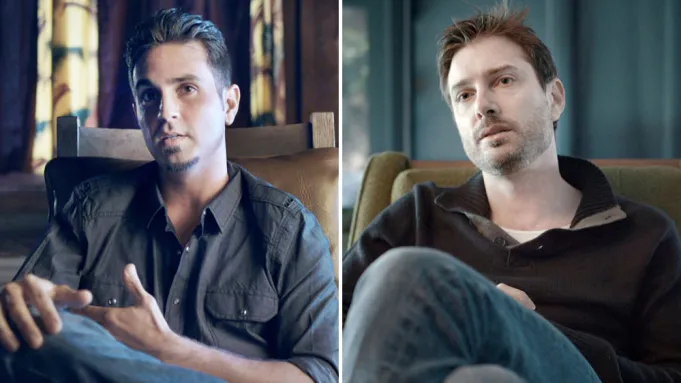In a dramatic turn of events, the haunting echoes of the “Leaving Neverland” documentary resurface as Wade Robson and James Safechuck, accusers of the late King of Pop, Michael Jackson, receive the green light from a California appeals court to proceed with their abuse claims in a trial. This 3-0 ruling marks a significant shift, allowing Jackson’s companies to be held accountable for his alleged misconduct, a decision that overturns a prior judgment.
The justices, in their ruling, underline the plaintiffs’ rightful expectation of protection from the potential danger of being left alone with Jackson. The allegations came to light in the chilling 2019 HBO documentary series “Leaving Neverland,” where Robson and Safechuck detailed their claims of childhood sexual abuse at the hands of the pop sensation. Jackson’s untimely death in 2009 didn’t extinguish the firestorm of controversy surrounding his legacy, igniting debates and legal battles that continue to this day.
READ MORE: Silent Roar: A Captivating Debut Delving into the Depths of Youth, Mystery, and Waves
The path to justice has been an arduous one for Robson and Safechuck. Their initial attempts to bring their case to court in 2013 and 2014 hit a roadblock due to the statute of limitations. However, a new law signed by California Governor Gavin Newsom in 2020 provided them with a fresh opportunity, extending the statute for child sexual abuse allegations. Despite facing dismissal again in 2021, the recent appellate court decision has reignited their quest for justice.
Wade Robson, now 46, alleges that Jackson began abusing him when he was just 7 years old, during his first visit to Neverland in 1990. His counterpart, James Safechuck, aged 40, claims his abuse began in Paris in 1988 when he was a mere 10 years old. Shockingly, the legal documents cite disturbing incidents where Jackson initiated explicit behavior and “marriage” rituals with the young Safechuck, leaving a trail of psychological scars and emotional turmoil.
The courtroom battle delves beyond the allegations themselves, exploring the culpability of Jackson’s companies, MJJ Productions and MJJ Ventures, in enabling his alleged misconduct. The defense’s argument that these entities solely belonged to Jackson and thus couldn’t oversee his behavior was dispelled by Associate Justice John Wiley Jr., who emphasized that, practically speaking, these corporations were indistinguishable from Jackson himself.
“The question in this case is whether Michael Jackson, as puppetmaster of his two wholly-owned corporations, could have taken cost-effective steps to avoid the harm the plaintiffs allege he inflicted upon them,” Wiley articulated. “The answer is yes. Jackson could have restrained himself.”
Amid the legal complexities, the truth remains elusive. Jonathan Steinsapir, attorney for Jackson’s estate, expressed disappointment with the court’s decision while maintaining Jackson’s innocence. He referenced a quote from Jackson himself: “lies run sprints, but the truth runs marathons.”
The stage is now set for a trial that promises to delve deep into the shadowy crevices of fame, power, and the quest for justice. As the legal drama unfolds, the world watches with bated breath, reminding us that even in the realm of entertainment, reality can be far more perplexing and heart-wrenching than any fiction.
